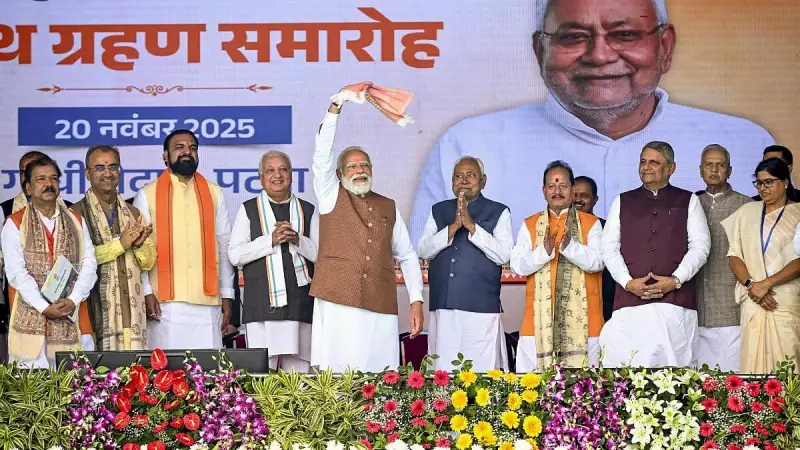
The Rashtriya Janata Dal (RJD) has ignited a major political controversy in Bihar by revealing that nearly 40% of ministers in Chief Minister Nitish Kumar's cabinet come from political families. The opposition party's analysis shows that ten out of twenty-seven ministers in the current government are dynasts, raising serious questions about meritocracy and equal opportunity in the state's administration.
The Dynasty Breakdown Across Parties
According to the RJD's comprehensive analysis, the dynastic trend cuts across party lines within the ruling coalition. The Janata Dal (United) leads with five ministers from political families, followed closely by the Bharatiya Janata Party (BJP) with three dynast ministers. The Hindustani Awam Morcha (HAM) contributes one, while even the lone minister from the Congress party also hails from a political background.
The RJD specifically named several prominent ministers who belong to political dynasties. These include JD(U) leaders like Vijay Kumar Chaudhary, Shravan Kumar, and Leshi Singh. From the BJP, the party highlighted names such as Samrat Choudhary and Renu Devi. The analysis also pointed to Santosh Kumar Suman from HAM and Congress's Shakil Ahmed Khan as coming from established political families.
RJD's Political Offensive and Counter-Arguments
The RJD launched this exposure as part of its strategy to counter the BJP's frequent accusations of dynastic politics against opposition parties. An RJD spokesperson emphasized that their analysis proves dynastic politics exists across all parties, including those who regularly criticize the practice. The party aims to highlight what it calls the hypocrisy in the political discourse around family-based politics.
However, leaders from the ruling coalition have defended their ministers, arguing that political lineage doesn't automatically disqualify someone from public service. They point out that many of these ministers have established their own political credentials and have been elected through democratic processes. The debate has intensified as Bihar prepares for upcoming political battles, with both sides using the dynastic politics issue to score points.
Broader Implications for Bihar Politics
This revelation comes at a crucial time when Nitish Kumar's government is positioning itself as a model of development and good governance. The exposure of significant dynastic representation in the cabinet could potentially undermine this narrative and provide ammunition to opposition parties. The timing is particularly sensitive given the evolving political alliances in the state.
The controversy also raises larger questions about political representation and opportunity in Indian democracy. While political families argue that their children inherit political wisdom and experience, critics contend that this practice limits opportunities for new talent and reinforces elite dominance in politics. The Bihar case study provides concrete data to fuel this ongoing national debate about the health of democratic institutions and processes.
As the political temperature rises in Bihar, the dynastic politics debate is likely to remain central to the discourse. Both the ruling coalition and opposition parties are carefully calibrating their strategies around this issue, aware that it resonates with voters concerned about fair representation and equal opportunity in the political system.






